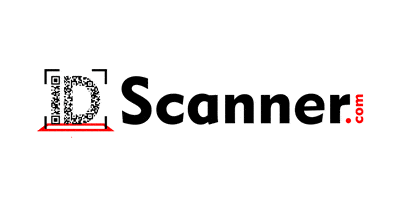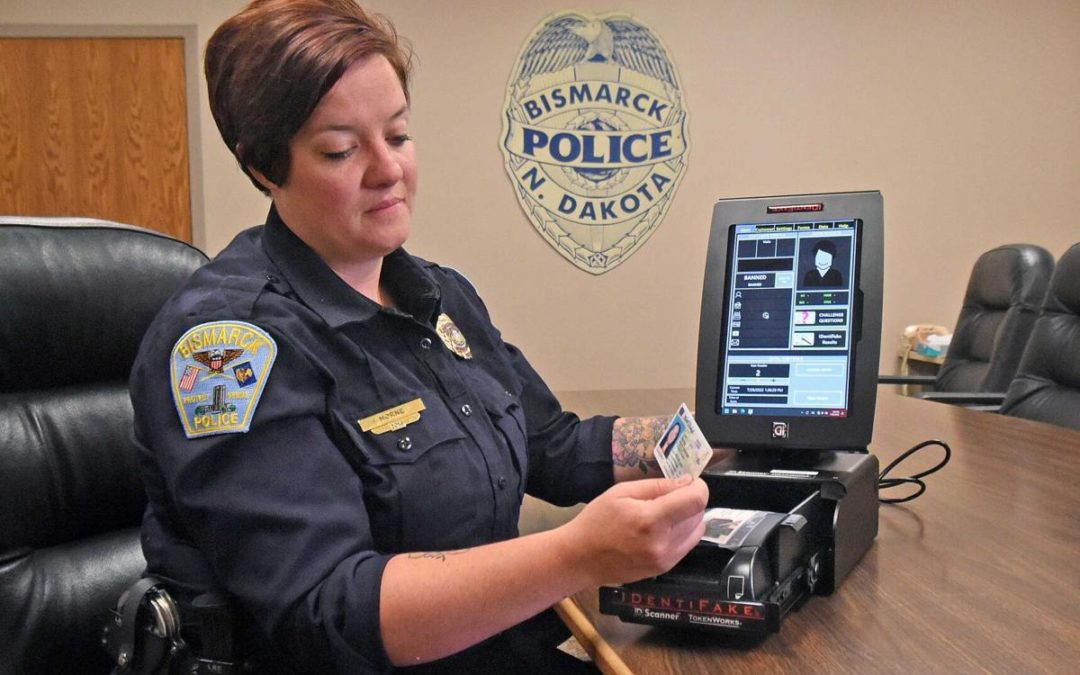Bismarck Police Officer Caitlin Horne looks over an identification card before placing it in an IDentiFake machine. “It’s the same Fake ID scanner that some of the bars use in the Bismarck and Mandan area,” Horne said of the portable machine that’s used for alcohol sales. Bismarck-Burleigh Public Health and the Bismarck Police Department are partnering to address underage substance abuse and fake ID.
Local bars and restaurants struggling with underage patrons using fake IDs reached out to Public Health Substance Abuse Prevention Director Susan Kahler last year. Kahler knew of a fake ID pilot program in Grand Forks and decided to work toward a similar program in Bismarck.
She applied for a $62,500 public health grant from the state to fund the entire program and contacted the Bismarck Police Department. Together, they launched a pilot program last August with a goal of limiting the use of fake IDs by minors.
“We want to prevent underage drinking, and (getting a fake ID) is another avenue youth are going through,” Kahler said.
The program uses specialized fake ID scanners that have the ability to detect fake IDs at a more efficient rate than people trying to identify them visually. The scanners are installed on-site, and establishments are given training on how to operate them. Kahler said the scanners, which cost around $5,300, are able to detect fake IDs using between 40 and 50 reference points.
It didn’t take long for the scanners to be successful.
“Within two weeks we were able to get 19 fake IDs,” said Police Officer Caitlin Horne, who is a project leader.
The program has now collected more than 130 fake IDs at five participating businesses.
Police and Public Health have partnered with local colleges and universities to have underage drinking cases related to students be run through the schools’ codes of ethics. The hope is to attack the problem through education. This includes alcohol awareness classes that teach the dangers of underage drinking. Offenders might also be required to do community service.
“Our main objective is to educate rather than punish. We’ve all been young and made mistakes,” Horne said. “We aren’t trying to ruin people’s lives.”
The program also is being used to promote Responsible Beverage Server Training. An officer goes to bars and restaurants and trains staff to be aware of when to cut off patrons, among other skills.
Public Health has attempted other efforts to reduce underage drinking. The agency has experimented with a “sticker shock” campaign that uses stickers with information such as the fine for distributing alcohol to minors. The stickers have been posted in liquor stores, restaurants and bars as a deterrent.
Public Health also promotes “lock, monitor, secure” to reduce underage drinking.
“Its really important that we talk to our youth about underage drinking,” Kahler said.
She hopes more businesses will join the fake ID program. Scanners are available to businesses at no charge, and police can rotate the scanners among businesses.
Businesses that want to join can contact either Kahler at 701-355-1597 or Horne at 701-223-1212.
Reach Zachary Weiand at 701-250-8244 or zachary.weiand@bismarcktribune.com.
Additional information on Fake ID scanners can be found HERE
For a link to the article click HERE
For a PDF copy, click HERE

